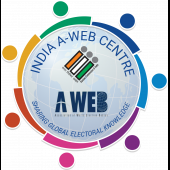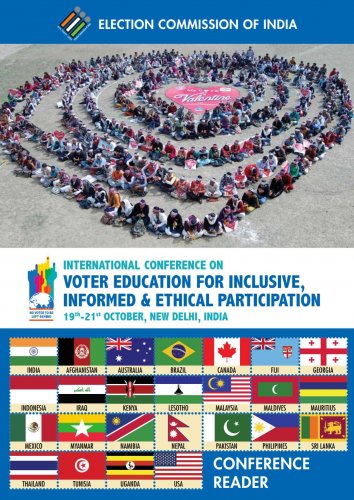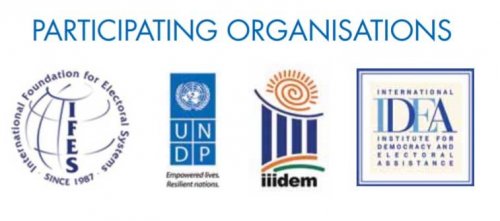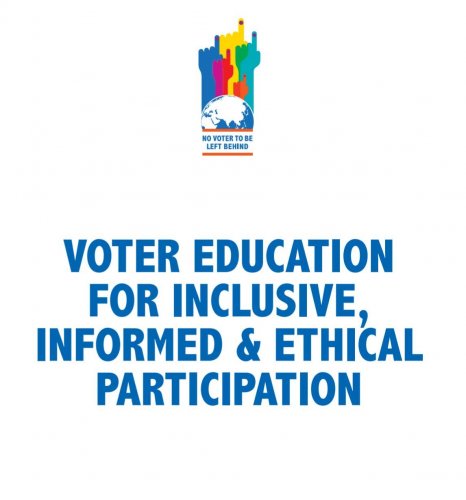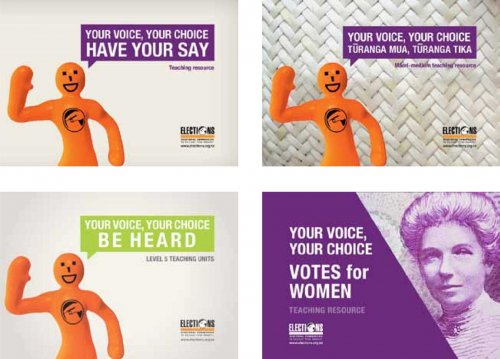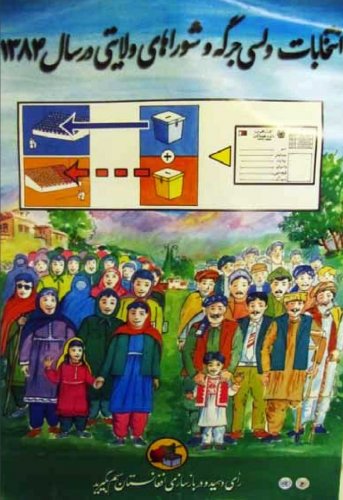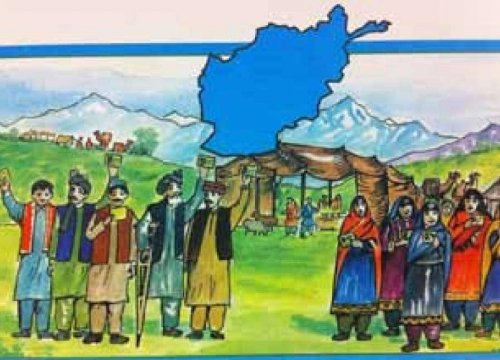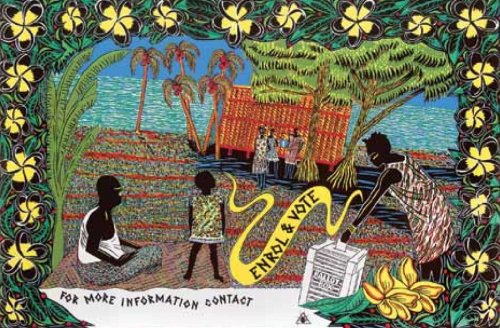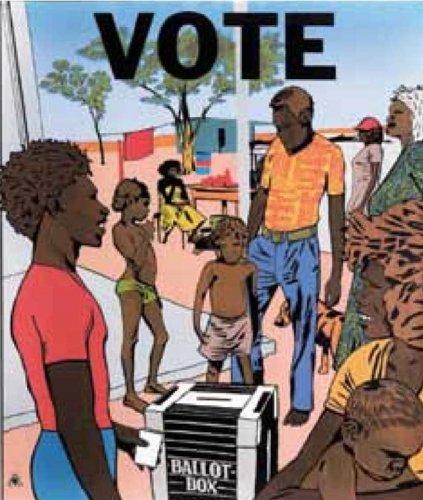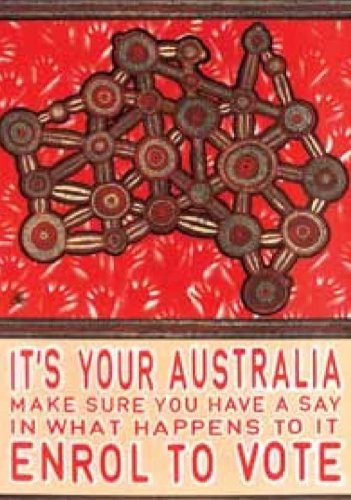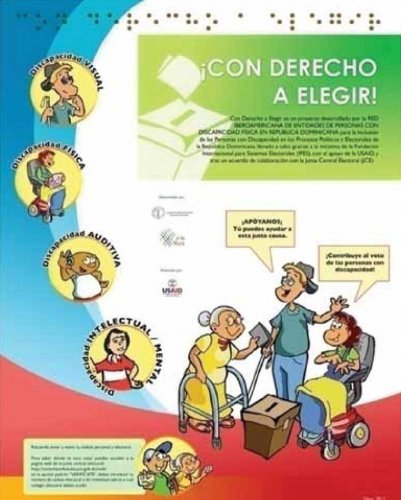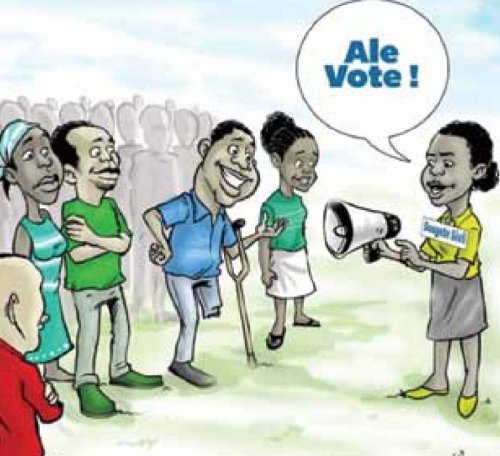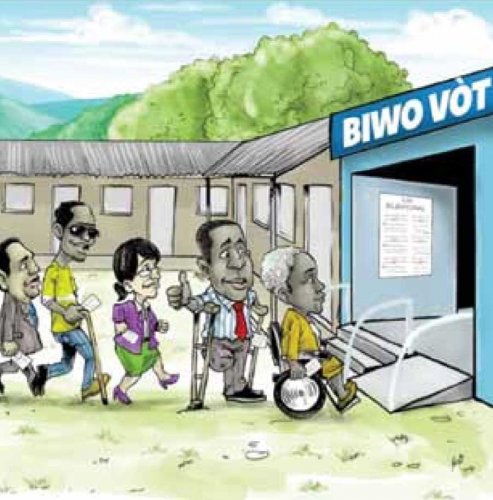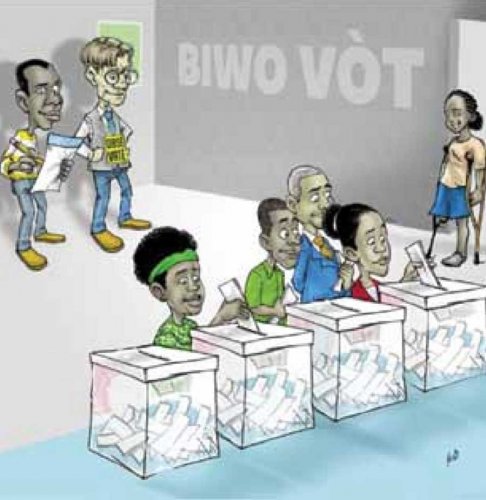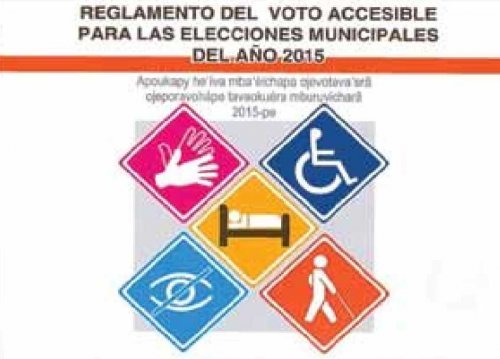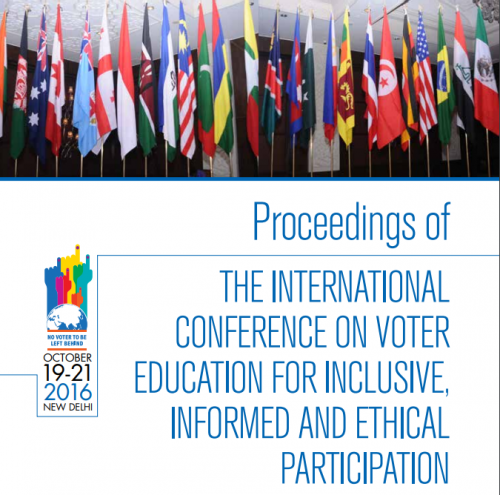About This File
1. Conference Reader - International Conference on VOTER EDUCATION FOR INCLUSIVE, INFORMED & ETHICAL PARTICIPATION (October 2016)
This Conference Reader has been prepared to facilitate the interaction during the three day International Conference on Voter Education for Inclusive, Informed and Ethical Participation.
The Reader focuses on some of the fundamental concepts in the realm of democracy, electoral standards and the voter education followed by the readings, for each of the sessions (Sections 1-5), which reflect the strategies, approaches and systems developed and adopted by different countries for voter education besides the Introductory Note and Note on Issues and Challenges in respect of each of the thematic sessions of the Conference. Section 6 offers some Case studies.
The Introductory Section deals with basic concepts and extends welcome to the Conference through sharing the Indian experience of voter education. International electoral standards emanate from the UDHR and ICCPR etc. Article 21of UDHR speaks of right to participation by all in forming the government in a country, will of the people to be to be basis of the authority, will to be expressed through periodic and genuine elections and elections to be conducted through universal and equal suffrage by secret vote. Article 25 of ICCPR is about participation and introduces human rights aspects into electoral process. Any system operating in a State must be compatible with the rights protected by Article 25 and must guarantee free expression of the will of the electors. The principle of one person, one vote, must apply.
Participation, direct or indirect through freely elected representatives, is the fundamental connect with the base of substantive human rights. A voter is the central figure who elects in a democracy. Free and fair elections, characterized by inclusiveness, transparency, accountability, and competitiveness, are fundamental to democracy and the basis for democratic legitimacy. Elections are a process comprised of multiple steps. Elector confidence or the public confidence in each step of electoral process is vital to the credibility and integrity of an election and in turn the democratic polity.
For electors, to choose their representatives through the ballot, it is essential that they are fully aware of all the steps and procedures of the electoral process and they are comfortably confident of making informed ballot decisions. In this context, voter education is of tremendous significance and import to the voters, the election management bodies and the contestants. And this is what forms the basis for voter education and its generic macro sphere that is civic education The UNCHR in its Handbook on Human Rights and Elections (1994) has spelt out the guiding principles on “Public Information and Voter Education.” The principles inter alia state that the funding and administration should be provided for objective, non-partisan voter education and information campaigns especially for new voters. The public should be well informed as to where, when and how to vote besides why voting is important. Voters must
be confident in the integrity of the election process and their right to participate in it. Literature should be widely available in all national languages to help meaningful participation by all eligible voters. Multimedia methods should be employed to provide effective civic education to people. Voter education campaigns should cover the entire territory of the country.
In this background, aims and objects of voter education must address the information and awareness needs of all categories of voters including the needs emerging from new technologies so that a voter feels confident and familiar with the entire electoral process. Voter education must be universal in coverage and address challenges of gender sensitivity, inclusion, voter apathy, youth engagement besides marginalized sections of society.
Civic education, as compared to voter education, is a broader and generic concept aimed at conveying knowledge of a country’s political system; the organization, structure and the way it operates. Voter education is most effective when it integrates with civic education that puts the election into context for voters and provides an explanation of the election’s purpose, the surrounding issues, and their significance.
Strategies and approach adopted for voter education may vary in different countries. EMB’s are primarily responsible for voter education; institutional arrangements and strategies for connect with the Voter. The government, the public and private media, political parties, nonpartisans including international organizations plays a vital supplementary role as stakeholders subject to overall guidelines of the EMB and strict conditions of non partisan approach.
In India, ‘Systematic Voters’ Education & Electoral Participation’ (SVEEP) is the flagship programme of the ECI which addresses the voter education needs of over 834 million voters spread over 543 constituencies of the House of People and 4120 Assembly constituencies covering 30 States and Union Territories. Essentially an outreach based programme, it engages voters through multimedia under well designed strategies to connect with the grass roots of Indian democracy with its vertical impact going down to the voters spread over almost a million polling stations located in far flung villages, hamlets in rural areas and its capture of Indian diversity which generates the strength of India’s unity through its democratic polity
2. Proceedings of the International Conference on Voter Education for Inclusive, Informed and Ethical Participation
A document on proceedings of the International Conference on ‘Voter Education for Inclusive, Informed and Ethical Participation’ held in New Delhi in October, 2016 with knowledge resources on voter education systems of EMB’s of well over two dozen countries, International Institutions and Experts.

